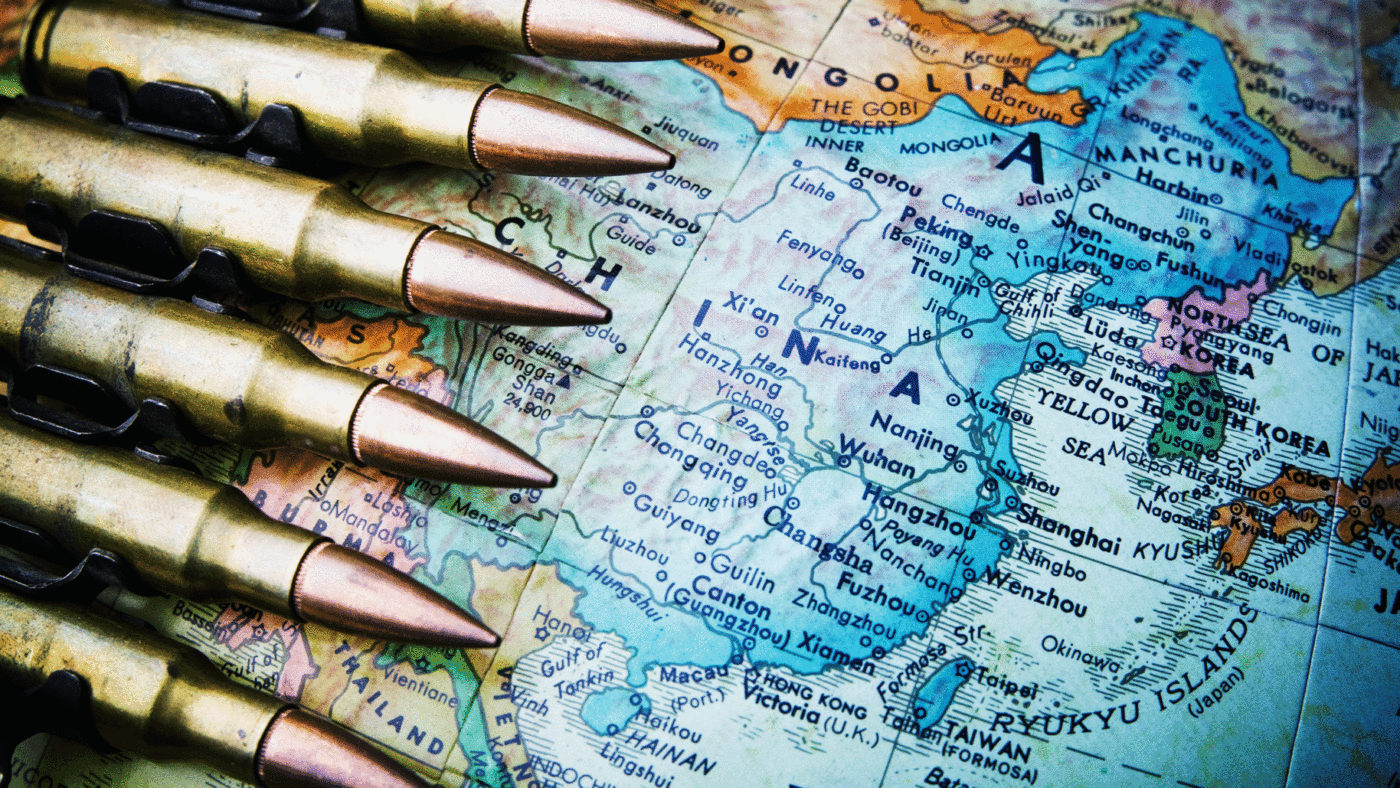Following her landslide re-election in January, Taiwan’s President Tsai Ing-wen could be forgiven for dropping her trademark conciliatory tone towards China. After all, Beijing had just spent the past four years poaching her country’s few remaining formal diplomatic allies and pushing it out of international organisations including as, we all too sadly know, the World Health Organisation.
Still Tsai continues to handle cross-strait relations with the utmost caution. In October, to mark Taiwan’s national day, Tsai delivered another conciliatory speech calling for “meaningful dialogue”. Beijing, however, were in no mood for talking. That weekend, China’s air, navy and ground forces simulated an attack on the island and plastered the fiery footage all over state broadcasters.
Aggression of this kind is nothing new and it should be stressed an invasion is not imminent. Military drills, incursions into Taiwan’s air and sea space, as well as the firing of rockets across the strait have frequently been used by Beijing to discourage Taiwan from steps towards formal independence. Yet, as a recent Reuter’s investigation highlights, the frequency of China’s military manoeuvres against the island has become alarming.
Chinese warplanes have repeatedly flown into Taiwan’s airspace. Since mid-September over 100 of these missions have taken place according to official statements by Taiwan’s Ministry of National Defense. More worryingly still the aircraft chosen for such flights include some of China’s most sophisticated fighters and bombers.
Encroachments into Taiwan’s airspace are good practice for the People’s Liberation Army. They establish a new normal, lulling the world into a false sense of security, and also allow China’s military to gather intelligence such as response times from Taiwanese jets which are forced to scramble.
Given this, it is little wonder Washington, at both an executive and congressional level, has stepped up support for Taiwan. The Trump Administration has regularised arms sales, to ensure the island can defend itself, and America has led efforts to counteract Beijing’s relentless campaign to isolate Taiwan internationally.
America has always had strong ties with Taiwan. Britain’s history has been somewhat more complex. Famously, despite pleading from Taipei, the United Kingdom (UK) was the first western country to recognise the victorious Maoist regime in Beijing. Yet despite this, today both countries enjoy good, albeit unofficial, diplomatic relations.
Britain has an interest in preserving the peace as well as a natural desire to see a fellow free nation flourish. Alongside the United States and fellow liberal democratic allies, the British government has committed itself to supporting a free and open Indo-pacific.
The submission of Taiwan would strike at the heart of this goal – authoritarian regimes cannot be free to annex neighbours. Moreover, it would allow China, as General Douglas MacArthur feared, to turn Taiwan into an unsinkable aircraft carrier, one which could be used to project the country’s power into the Western pacific and other sea routes key for maritime trade.
While only America can credibly commit to defending Taiwan alone, other nations can do more. This includes the UK. Britain could replicate the Trump Administration by sending cabinet ministers to Taipei or follow Japan’s lead with public leader-to-leader messages.
On a practical level, while Britain does back Taiwan’s participation in international organisations for which statehood is not a prerequisite, when Taiwan fails to enter bodies such as the World Health Organisation protest can be mute. A recent report from the Centre for Strategic and International Studies suggests American officials publicly meet with their Taiwanese counterparts before and after the meetings they have been excluded from. Why not Britain and its allies too?
Alternatively, Britain should lobby for Taiwan’s participation in new bodies where China does not hold sway. As well as create platforms for Taiwanese experts to participate. Taiwan’s handling of Covid has once again demonstrated the country’s value to the rest of the international community. While Taipei also has lessons to teach the democratic world about election interference operations and cyber intrusions.
Tensions in the Taiwan Straits should concern Boris Johnson just as much as they do officials in the incoming Biden administration. General Secretary Xi has warned that he is not willing to see the issue of Taiwan passed onto the next generation. Recent military manoeuvres, including grey-zone tactics, are a demonstration of his resolve. Those countries who wish to see Taiwan’s democracy continue to thrive and a free and open Indo-Pacific must demonstrate their determination too.
Click here to subscribe to our daily briefing – the best pieces from CapX and across the web.
CapX depends on the generosity of its readers. If you value what we do, please consider making a donation.


